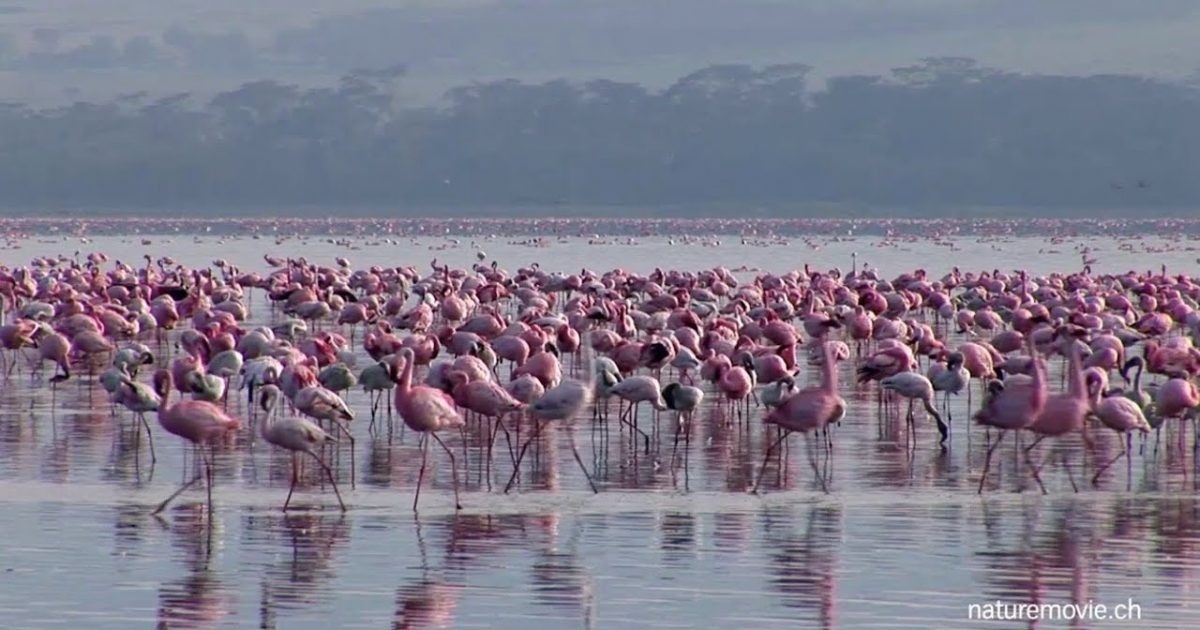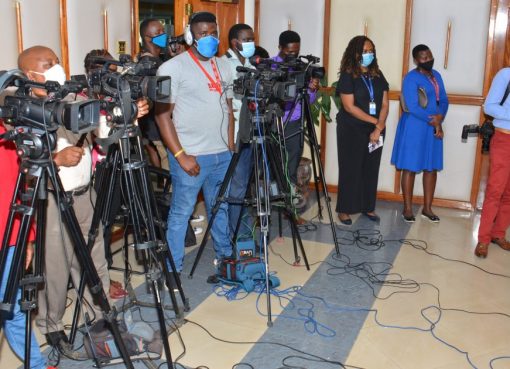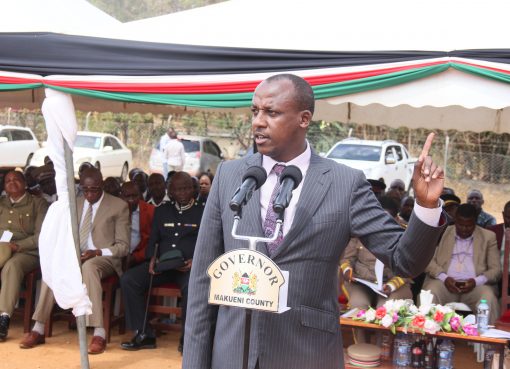Perhaps it’s time to declare that the writings are on the wall but will humanity rise to the occasion and do what is right? This is in view of the fact that we are in a biodiversity crisis and nature is unwavering while the climate keeps flushing red warning signs. Is anyone listening?
We have 400 species of living things of which 68% reduction have been realized in the wildlife population (mammals and reptiles) over a period of 46 years, according to global research by scientists. It states that 75% of land suffered flooding and other human activities.
Reduction of 68% of over 4000 species monitored over the last 46 years covered; mammals, amphibians and reptiles.
Wildlife populations found in freshwater habitats have suffered the greatest decline of 84% which is the starkest average population decline in any biome, equivalent to 4% loss per year since 1970.
According to Nancy Githaiga, the Manager, Policy Research & Innovation at World Wide Fund (WWF), Kenya the emergence of zoonotic diseases like COVID – 19 could largely be attributed to unsustainable human activities such as poor land use and illegal trade on wildlife which culminated in the destruction of up to 68% of wildlife loss.
“This is why nature is unrelenting and our climate is flushing red warning signs”, explained Githaiga who concurred that there is an urgent need for humanity to strive to bend the curve of biodiversity loss.
She said it was the time to take urgent measures if we hope to reverse the negative trend, as opposed to expanding areas under agricultural irrigation while pushing to achieve a carbon neutral and nature positive ecosystem.
Nature expert, Jeff Warden on his part said the habitat decline and environmental destruction has led to the steady rise of global pandemic such as COVID – 19 and so the urgent need to ensure sustainable environmental conservation for the future generation.
“We have the ability to fix the broken relationship between human beings and nature. We need to re-examine our food production systems with a view to making necessary corrections before the problems spiral into a total global disaster”, said Warden.
He pointed out that there was need to increase funding to facilitate such programs arguing that nature has never been so high on our political agenda and global development priorities.
According to Living Planet Index (LPI) in Congo basin (Africa) alone, unchecked consumption of bush meat has led to loss of huge financial resources and various animal and fish species which contributed to 87% decline in the gorilla species population in the DRC.
Similarly, in south west Ghana, between 90 – 99% losses of mountain gorillas have been recorded even as researchers and scientists raised the red flag in the hope that relevant global institutions and local actors will respond faster to prevent the impending disaster.
All this came to the fore during the Media for Environment, Science, Health and Agriculture (MESHA) pre-conference webinar which connected more than 100 science journalists and researchers to dialogue ahead of the virtual conference set to take place in November this year.
The forum was convened to establish whether it could be relied on as an authentic source of quality discussion on pertinent issues that were of major concern to environmental challenges and the human race.
Luther Anukur, the Regional Director for International Union for Conservation of Nature (IUCN), warned of the threats of climate change that could culminate into extreme events such as cyclones, drought, erosion and land degradation.
Anukur disclosed that such human activities could cause changes in the rainfall pattern leading to water shortages and drastic rise in temperature causing shifts in the growing seasons. This, he added, could lead to reduced river flow affecting hydroelectric dams, hence power shortages and increased electricity tariffs.
He warned that energy shortage could lead to respective governments exploring the potential of purchasing fuel. “Developing countries will suffer the greater impacts while the capacity of developing countries become more vulnerable”, he explained.
Anukur further cautioned that a number of African countries including Kenya have become water scarce and could end up importing water just like fuel (petrol, gas and other related products).
In Africa, Rwanda, the Government has helped to restore more than 700, 000 hectares of degraded land since 2011 as well as 100 million tons of Carbon dioxide and supporting 22, 325 jobs along the way.
Conservation experts at the virtual meeting said over 84% of wetlands were lost globally over a period of 300 years leaving a third of the long rivers including; Nile, Yellow river, Congo and Tana in Kenya still flowing.
The forum was also informed that during the period more than a third of natural wetlands were destroyed through irresponsible human activities including agriculture, traditional land subdivision and clearing riparian areas for large scale development programs like housing.
As a result of this 70% of our diseases have been found to be zoonotic related yet for every dollar we spend downstream, the same could create a much bigger impact if it was done upstream through development of dams, dykes, drains and canals.
Scientists have thus warned that if we can’t bend the curve by 2030 then this matter could escalate into a global disaster leaving the human race on the verge of extinction.
The telling signs of locusts’ invasion, perennial flooding and extreme low and high temperatures mean that we have limited time within which to act in the hope of reversing the dangerous trend or leave our fate to the vagaries of weather.
This is why journalists attending the virtual forum were challenged to ensure the media set the agenda for matters conservation going into post COVID- 19 period where focus will shift to Green Recovery Plans. For the Plan, the European Union (EU) has set aside 750 billion Euros (Kshs.112.5 Trillion) fiscal stimulus package announced in July 2020 to address the COVID – 19 pandemic (LPI report).
The EU’s plan promises to go beyond previous efforts to reduce carbon footprints by moving toward a climate neutrality pledge that prioritizes the broader societal benefits of a ‘green’ growth.
Facilitators and media personalities projected the view that local communities should be fully involved in the conservation of nature, including wildlife species. This would be a sure way of tackling the persistent human-wildlife conflict and increasing ownership especially in community conservation areas. In Kenya, the Elephant population has risen to 35000 up from 16000 due to efforts across the board including communities allowing the elephants to thrive in their lands.
MESHA Secretary, Aghan Daniel said human wildlife conflicts have been difficult to manage owing to politics around the subject even as hippos from Lake Victoria destroy agricultural produce belonging to local communities thus compounded their poverty status.
Aghan cited recent approval of consumption of donkey meat in Kenya as having added a worrying trend into the mix, as those who breed the beast of burden complained that their animals disappeared mysteriously. A huge population simply abhorred the reality that donkey meat could be eaten. Where are the global nature patriots to stand up and be counted?
By Joseph Ouma.





